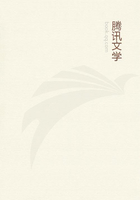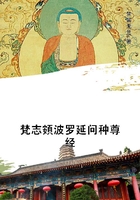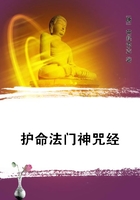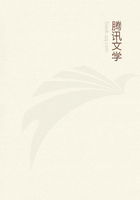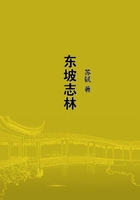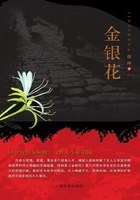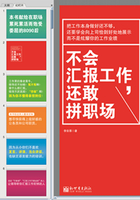When I had gained experience by constant practice, I would not let my husband do any more household duties for me. He complained bitterly at first that I was depriving him of his penance.
This did not convince me. Whatever he might say, I could feel that he had a real sense of relief when these household duties were over. To serve daily a wife who is blind can never make up the life of a man.
My husband at last had finished his medical course. He went away from Calcutta to a small town to practise as a doctor. There in the country I felt with joy, through all my blindness, that I was restored to the arms of my mother. I had left my village birthplace for Calcutta when Iwas eight years old. Since then ten years had passed away, and in the great city the memory of my village home had grown dim. As long as Ihad eyesight, Calcutta with its busy life screened from view the memory of my early days. But when I lost my eyesight I knew for the first time that Calcutta allured only the eyes: it could not fill the mind. And now, in my blindness, the scenes of my childhood shone out once more, like stars that appear one by one in the evening sky at the end of the day.
It was the beginning of November when we left Calcutta for Harsingpur.
The place was new to me, but the scents and sounds of the countryside pressed round and embraced me. The morning breeze coming fresh from the newly ploughed land, the sweet and tender smell of the flowering mustard, the shepherd-boy's flute sounding in the distance, even the creaking noise of the bullock-cart, as it groaned over the broken village road, filled my world with delight. The memory of my past life, with all its ineffable fragrance and sound, became a living present to me, and my blind eyes could not tell me I was wrong. I went back, and lived over again my childhood. Only one thing was absent: my mother was not with me.
I could see my home with the large peepul trees growing along the edge of the village pool. I could picture in my mind's eye my old grandmother seated on the ground with her thin wisps of hair untied, warming her back in the sun as she made the little round lentil balls to be dried and used for cooking. But somehow I could not recall the songs she used to croon to herself in her weak and quavering voice. In the evening, whenever I heard the lowing of cattle, I could almost watch the figure of my mother going round the sheds with lighted lamp in her hand.
The smell of the wet fodder and the pungent smoke of the straw fire would enter into my very heart. And in the distance I seemed to hear the clanging of the temple bell wafted up by the breeze from the river bank.
Calcutta, with all its turmoil and gossip, curdles the heart. There, all the beautiful duties of life lose their freshness and innocence. Iremember one day, when a friend of mine came in, and said to me: "Kumo, why don't you feel angry? If I had been treated like you by my husband, I would never look upon his face again."She tried to make me indignant, because he had been so long calling in a doctor.
"My blindness," said I, "was itself a sufficient evil. Why should Imake it worse by allowing hatred to grow up against my husband?"My friend shook her head in great contempt, when she heard such old-fashioned talk from the lips of a mere chit of a girl. She went away in disdain. But whatever might be my answer at the time, such words as these left their poison; and the venom was never wholly got out of the soul, when once they had been uttered.
So you see Calcutta, with its never-ending gossip, does harden the heart. But when I came back to the country all my earlier hopes and faiths, all that I held true in life during childhood, became fresh and bright once more. God came to me, and filled my heart and my world. Ibowed to Him, and said:
"It is well that Thou has taken away my eyes. Thou art with me."Ah! But I said more than was right. It was a presumption to say: "Thou art with me." All we can say is this: "I must be true to Thee." Even when nothing is left for us, still we have to go on living.
We passed a few happy months together. My husband gained some reputation in his profession as a doctor. And money came with it.
But there is a mischief in money. I cannot point to any one event; but, because the blind have keener perceptions than other people, I could discern the change which came over my husband along with the increase of wealth.
He had a keen sense of justice when he was younger, and had often told me of his great desire to help the poor when once he obtained a practice of his own. He had a noble contempt far those in his profession who would not feel the pulse of a poor patient before collecting his fee.
But now I noticed a difference. He had become strangely hard. Once when a poor woman came, and begged him, out of charity, to save the life of her only child, he bluntly refused. And when I implored him myself to help her, he did his work perfunctorily.
While we were less rich my husband disliked sharp practice in money matters. He was scrupulously honourable in such things. But since he had got a large account at the bank he was often closeted for hours with some scamp of a landlord's agent, for purposes which clearly boded no good.
Where has he drifted? What has become of this husband of mine, --the husband I knew before I was blind; the husband who kissed me that day between my brows, and enshrined me on the throne of a Goddess? Those whom a sudden gust of passion brings down to the dust can rise up again with a new strong impulse of goodness. But those who, day by day, become dried up in the very fibre of their moral being; those who by some outer parasitic growth choke the inner life by slow degrees,--such wench one day a deadness which knows no healing.
The separation caused by blindness is the merest physical trifle. But, ah! it suffocates me to find that he is no longer with me, where he stood with me in that hour when we both knew that I was blind. That is a separation indeed!

